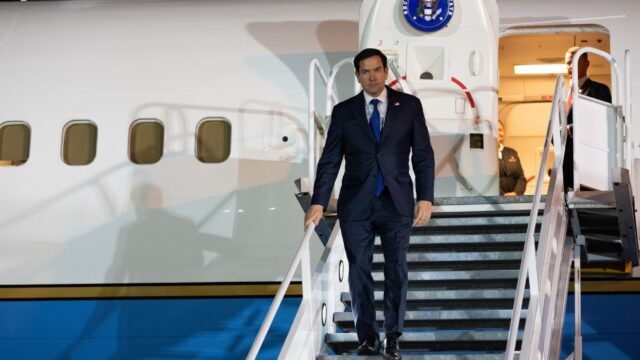Panama’s President Ends Key Development Agreement with China Amid US Concerns
Date: [Insert Date]
President’s Bold Statement
In a significant shift in foreign policy, Panama’s President José Raúl Mulino announced on Sunday his intention to terminate a pivotal development agreement with China. This decision follows a crucial meeting with U.S. Secretary of State Marco Rubio, amid escalating concerns voiced by former President Donald Trump regarding Beijing’s influence over the strategically vital Panama Canal.
Reaffirming Sovereignty
During a press briefing held after his discussions with Rubio, President Mulino reaffirmed Panama’s sovereignty over the iconic 51-mile canal, which serves as a crucial trade link between the Pacific Ocean and the Caribbean Sea. He declared his administration’s decision not to renew a 2017 agreement that sought alignment with China’s Belt and Road Initiative. Instead, Mulino expressed a keen interest in bolstering ties with the United States, viewing American investments as a pathway for Panama’s growth.
A New Chapter in U.S.-Panama Relations
Mulino stated, “This visit opens the door to building new relationships … and enhancing U.S. investments in Panama as much as possible.” His remarks underscore a commitment to redirecting Panama’s foreign policy towards the U.S., a sentiment echoed by Rubio, who was on his first international trip since taking office.
Rubio’s Position on Chinese Influence
Secretary of State Marco Rubio, a former senator from Florida, emphasized the Biden administration’s resolve to protect U.S. interests in the region. In a post on social media platform X, formerly known as Twitter, Rubio stressed, “The United States cannot, and will not, allow the Chinese Communist Party to continue its growing control over the Panama Canal area.” He also praised the dedicated team at the U.S. Embassy in Panama for their role in promoting Trump’s “America First” foreign policy vision.
The Trump Factor
Former President Trump has been a vocal critic of China’s influence over the canal, alleging that Beijing imposes exorbitant tolls on U.S. vessels using the vital waterway. The canal, originally constructed by the U.S. and completed in 1914, was ceded to Panama in 1999 under the Carter administration. Since then, Trump has made reclaiming control over the Panama Canal one of his administration’s focal points, highlighting the geopolitical implications of Chinese involvement.
Proposed Legislation to Reclaim Strategic Control
In response to ongoing concerns regarding China’s influence, House Republicans have introduced the controversial Panama Canal Repurchase Act, a legislative initiative aimed at facilitating U.S. reacquisition of the canal. Spearheaded by Representative Dusty Johnson (R-S.D.), who serves on the Select Committee on China and the House Transportation and Infrastructure Committee, this legislation underscores America’s strategic interests within the region.
Statements from Congressional Allies
In a statement regarding the proposed legislation, Rep. Johnson remarked, “President Trump is correct to propose repurchasing the Panama Canal. China’s involvement in the canal raises significant security concerns. Strengthening America’s presence there could bolster both national security and global stability.”
Strategic and Economic Importance of the Canal
The U.S. Department of State estimates that approximately 72% of all vessels traversing the Panama Canal are destined for U.S. ports. The canal is not only a critical transit point for commercial vessels but also for U.S. Coast Guard and Department of Defense ships. Without it, maritime traffic would be forced to navigate an additional 8,000 miles around South America, presenting logistical challenges and potential risks. Johnson’s office noted that over 10,000 ships utilize the canal annually, generating billions in toll revenue and highlighting its economic and strategic significance.
Broader Issues on the Agenda
While the conversation primarily focused on the Panama Canal, Secretary Rubio highlighted other pressing topics discussed with Panamanian officials, which included the ongoing migration crisis across the hemisphere and ensuring fair competition for American businesses operating in the region.
Final Thoughts
The recent developments mark a significant moment in U.S.-Panama relations, as both nations look to realign their partnership in the context of rising tensions with China. Whether through increased investments or strategic legislative measures, the implications of these decisions will be pivotal in shaping the future of the canal and the broader geopolitical landscape in Central America.
